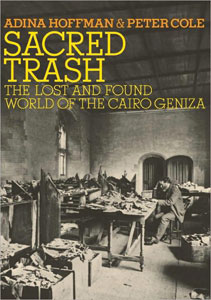The question
 “Mom, when can we change the kitchen over to being kosher?”
“Mom, when can we change the kitchen over to being kosher?”
It was a warm June evening as I absently prepared dinner for Allen, my husband of 38 years, and Michael, our 19 year old son.
Michael, our youngest child, a wonderful gift in our early 40s, has always kept us on our toes with his interests. This time he asked us for something that could have the impact of an earthquake, rocking our familiar, comfortable world.
“Michael, this isn’t something one does lightly,” I said. I glanced over at Allen and saw his eyes agree. “Let’s just take it one step at a time.”
We expected Michael to change once he returned home from Israel where he spent the past school year. We knew that observant practices are not unusual for someone just home from living an Orthodox Jewish life at Yeshiva Reishit Yerushalyim in Beit Shemish. We knew he would eventually want to make some changes at home because bringing in food from the kosher deli was quickly becoming tiresome and expensive.
I glanced at our kitchen, the small but efficient room that served us well while raising our three children. Did we want to make such a dramatic change at this point in our lives? Would our tiny ‘50s-era kitchen hold two sets of everything? Most importantly, would Allen be able, and willing, to give up his beloved cheeseburgers?
Neither Allen nor I previously considered kashering our kitchen but keeping kosher wasn’t completely foreign to us. We both learned the finer aspects of maintaining a kosher kitchen from Allen’s mother, a Conservative Jew. Several of our friends keep kosher too, and all our get-togethers involve observing kashrut.
But as much as Allen and I thought we knew about keeping kosher from our family and friends, in reality we knew very little about the practice. Starting online and in the synagogue library, we researched the practice of kashrut looking for answers to our questions. Then we consulted rabbis, rebbitzens, friends and family too, seeking answers to the questions that remained.
In the end, we realized that Conservative standards, the same standards followed by our family and friends, made us the most comfortable. This was not surprising since Conservative Judaism has always been central to our family life. While in Israel Michael experienced Orthodox glatt kosher meals, or those with a more restrictive kosher standard. We hoped he could accept a different one at home.
I wanted to support my son yet I felt I had to be true to my own beliefs too. I knew that asking Michael to make this compromise might push our son away. How would he react to our decision?
Weekday dinners became special to us as a family during this time since Michael stayed with friends close to his synagogue over Shabbat. During those meals we sat at the same table using plastic and paper tableware but consumed different foods.
While this practice was a necessary compromise, it seemed divisive to all of us. It was during one of these dinners that I chose to inform him of our decision. Maybe he would feel more compromising then.
“Michael,” I said as he looked up from his dinner preparations, “I think it’s time to talk about kashering the kitchen.”
“Excellent! Thanks Mom!” he beamed.
“Well, before you get your hopes up I have one request. Dad and I agree that if and when we convert the kitchen, we want to do it to Conservative standards. It’s really important to us.”
“I can handle that.” In the moment of stunned silence that followed, our relief flooded the room like a spring breeze. How he was able to be so conciliatory?
“One of the rabbis at Reishit taught that we should make some compromises in our homes in the name of Shalom Bayit,” he said. Shalom Bayit, peace in the home, a concept taught by a wise and understanding yeshiva rabbi who readily acknowledged the barriers students might face back home. I am eternally grateful to this Rabbi for his foresight.
Before I began the project, I learned about the biblical and historical underpinnings of kashrut. One fact intrigued me: Many Jews keep kosher as a way to elevate the mundane act of eating to a religious event. I wondered if our meals would ever reach that level and began to look forward to the day when we could eat in our own kosher kitchen.
I searched for information about the specific steps involved in kashering a kitchen that had never been kosher. How should I plan my time? Surely some tasks must be done before others to assure that the whole project is completed efficiently. I asked our kosher friends and family for their opinions regarding these issues and I met with two rebbetzins. While everyone gave sound suggestions and valuable guidance, no one truly answered my “logistics” questions. I learned as I went.
The more I learned, the more questions I had. One question stayed in the background of all I did: Was my kitchen big enough to accommodate two sets of everything?
I also wondered if the kitchen would ever be kosher enough. Would I, could I, do it right? Would people judge me harshly if I limited the physical labor, expense and time involved in taking the cookware, dishes and silverware to the mikveh and instead, boil utensils or use our dishwasher instead?
One rabbi, for whom I have the utmost respect, offered wonderfully sage advice “In The Name Of Leniency.” Those were important words for me to hear because my desire to make my kitchen perfect started to become a barrier to the project’s timely completion. The project moved forward.
We made several discoveries on this journey. Most amazingly, we have enough space; our tiny kitchen can hold two sets of everything and accommodate separate milk and meat preparation. While our meals have not elevated to a religious event, we discovered that keeping kosher is a nice daily reminder of one’s Judaism. While we do not know if Michael will continue with his Orthodox practices in the coming years, we are pleased that we supported his commitment to a mitzvah-centered life.
At last, six months of planning and a week of kashering were complete in time for Shabbat dinner. I looked at our masterpiece — our kitchen — compact, organized and kosher. Before sitting down to the meal, we lit candles and said the blessings. Blessed are you, Lord our God, King of the universe, who has kept us alive and sustained us and enabled us to reach this occasion.



 Several years ago, we saw the documentary, “The Case for Israel,” based on the Alan Dershowitz book. The film was produced by Gloria Z. Greenfield, president of Doc Emet Productions (founded in 2007) and Field Advocacy and Advancement Strategy Manager for the Partnership for Excellence in Jewish Education in the Greater Boston Area.
Several years ago, we saw the documentary, “The Case for Israel,” based on the Alan Dershowitz book. The film was produced by Gloria Z. Greenfield, president of Doc Emet Productions (founded in 2007) and Field Advocacy and Advancement Strategy Manager for the Partnership for Excellence in Jewish Education in the Greater Boston Area. In 1896 when Cambridge scholar Rabbi Solomon Schechter, who later became the president of the Jewish Theological Seminary, was shown a fragment of a Hebrew manuscript purchased in Cairo, his world tilted on its axis. The fragment was the first known Hebrew copy of a second century apocryphal text known as Ecclesiasticus, included in the Greek Orthodox and Catholic Bibles, but not in the Jewish canon. This discovery sent Schechter to Egypt where he managed to purchase and carry away a significant portion of the Cairo Geniza.
In 1896 when Cambridge scholar Rabbi Solomon Schechter, who later became the president of the Jewish Theological Seminary, was shown a fragment of a Hebrew manuscript purchased in Cairo, his world tilted on its axis. The fragment was the first known Hebrew copy of a second century apocryphal text known as Ecclesiasticus, included in the Greek Orthodox and Catholic Bibles, but not in the Jewish canon. This discovery sent Schechter to Egypt where he managed to purchase and carry away a significant portion of the Cairo Geniza. When Art Spiegelman began publishing “Maus” 25 years ago, reactions from the reading public ranged from praise to approbation. Imagine, telling the story of his father’s experiences in the Holocaust as a comic book and representing Jews as mice, the Poles as pigs, and the Nazis as cats? What was this avant-garde creator of comic literature trying to? In time, particularly after the author won the 1992 Special Pulitzer Prize Award, and numerous other prestigious honors, “Maus” became recognized as a 20th century classic. Spiegelman brought the graphic novel into the forefront of literature where today graphic literature is taken seriously by critics, educators and parents, as well as by readers of all ages.
When Art Spiegelman began publishing “Maus” 25 years ago, reactions from the reading public ranged from praise to approbation. Imagine, telling the story of his father’s experiences in the Holocaust as a comic book and representing Jews as mice, the Poles as pigs, and the Nazis as cats? What was this avant-garde creator of comic literature trying to? In time, particularly after the author won the 1992 Special Pulitzer Prize Award, and numerous other prestigious honors, “Maus” became recognized as a 20th century classic. Spiegelman brought the graphic novel into the forefront of literature where today graphic literature is taken seriously by critics, educators and parents, as well as by readers of all ages.